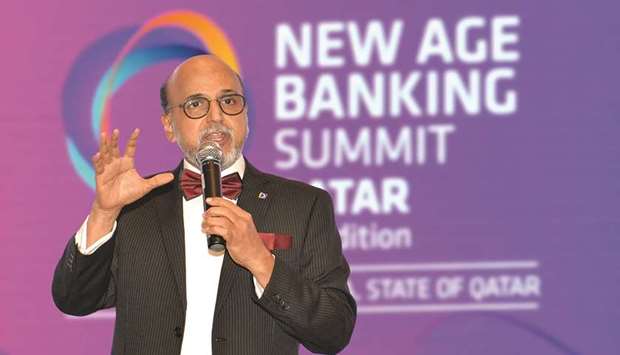“The fourth industrial revolution combines advanced technologies in innovative ways, dramatically reshaping the way people live, work and relate to one another...Banks need to manage the change by redefining their business models to manage various stake holders such as customers, regulator and shareholders,” said Seetharaman, who received ‘New Age Banker’ award at the recently-concluded New Age Banking Seminar.
Asserting that to adopt to the digital changes “either you need to be quick or dead”; he said realignment of resources will happen in the light of technology developments.
On crypto currencies, he said currencies are a barometer of economy and should not be tool for speculation.
Highlighting that technology should be an enabler and not a medium for exchange, Seetharaman said “if crypto currencies are measured and managed within a framework then it is acceptable. Banks will end up as B2B models.”
Financial institutions worldwide are realising that they need focus on a different sort of innovation, better technology, and modernise infrastructure and improve customer experience, according to him.
He said the banking business models are changing globally from being old traditional branch business to highly advanced automated customer centric experience for performing day-to-day banking activities.
Finding that fintech, Internet of things, block chain and artificial intelligence are some of the major technological developments, he said robotics, enabled by artificial intelligence and machine learning, is proving to be a game changer that can bring “unique operational efficiencies” to the financial services industry. Accelerating digital ecosystem development could lead to cashless economies, he added.
Fintech sector is one of the most happening sectors across the globe, he said, adding fintech would continue to disrupt banks, they have also become technology providers, competing with other fintech firms and sometimes collaborating or acquiring them to roll out shared platforms to enable services.
“Banks and the financial regulators should address the trade-off between convenience and security when it comes to digital banking. From compliance perspective banks and the regulators have to deal with questions arising from digital banking,” he said.
To protect customers, thwart organised criminals and ensure financial stability, prudential regulators and legislators need to ensure that regulation is future-proofed for the digital age, he said, suggesting banks need to redefine their business models to adapt themselves to the digital ecosystem and “hence digital governance is the need of the hour.”
Doha Bank being ‘conservative’ on dividends
Bloomberg/Dubai
Doha Bank is taking a conservative approach to dividend payouts amid a prolonged and unjust regional standoff, its chief executive officer said.
“Directors have given a cautious look to the dividend policy and they want to be conservative on the dividend payout as well,” Raghavan Seetharaman said in an interview in Doha.
The bank expects its expansion in Qatar offsetting a minor contraction in other Gulf Cooperation Council countries, the CEO said.
The bank has shrunk its operations in the UAE to the “bare minimum,” Seetharaman said, as it seeks to adapt after neighbouring Gulf states cut diplomatic relations and closed transport routes with the country in June last year.
Loan-loss provisions will be “marginally up” over coming quarters as the company adjusts to the introduction of new accounting standards and a change in behaviour from customers in GCC countries outside Qatar, he said.
Doha Bank will continue to take a “very cautious approach” to provisioning for its branches outside Qatar, after setting aside more funds for potential loan losses contributed to a 75% drop in second-quarter profit, Seetharaman said. “Once we have diffusion of the crisis and everything is restored, perhaps then we can write it back,” he said.
While the lender doesn’t see the need to merge with another institution because it has enough capital, the changing “face of financial services” will call for consolidation in the industry with the introduction of IFRS 9, new capital rules and increased use of digital-banking services, Seetharaman said.
Lenders across the region are undergoing possibly the biggest overhaul yet, with at least half a dozen banks involved in takeover or merger talks.
Qatar has a high ratio of banks to citizens than the rest of the region, with 18 local and international lenders serving 2.7mn people. “I am not seeing the possibility at this point but I am not ruling out in the medium- and long-term,” Seetharaman said.

